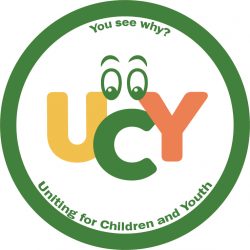2025 – Learning Planet Festival Event
Organized by the Rights-Centric Education Network and Uniting for Children and Youth
Creating bridges between the new and the old: living democratically in conventional schools
Quick recap
The team discussed technical aspects of hosting meetings, including screen sharing and sound issues, and the importance of managing stress and workload effectively. They also explored ongoing projects and initiatives, such as the DESK project and the 20% time concept, and the establishment and development of Suvemae, a democratic education pilot school in Estonia. Lastly, they discussed the NEEDS project, which focuses on negotiating the essentials for education in democratic societies.
Next steps
• Attendees to watch the Suvamai school documentary video shared in the chat.
• Interested participants to email Derry for a PDF copy of his book.
• Attendees to consider joining UDEC (European Democratic Education Community) and the Rights-Centric Education Network.
• Interested participants to attend the Democratic Education Conference in Belgium in August 2025.
• Attendees to explore the 50 practical tools for democratic practices in classrooms shared by Quest.
• Interested participants to contact Charlie via email for further discussions on the school-within-a-school model.
Summary
Managing Stress and Workload Challenges
The team discussed the need to manage stress and workload effectively. Derry emphasized the importance of looking after team members who are stretched out. The team also discussed the challenges faced by the English education system and the need for curriculum review. The conversation ended with a discussion about the presentation of the “DECUS Project” and the introduction of Derry and Charlie. The team also decided to record the meeting for future reference.
QUEST Organization and Democratic Education
The QUEST organization, a European network organization focused on democratic, inclusive, and sustainable education, discussed their ongoing projects and initiatives. They highlighted the DECUS Project, a three-year European-funded project aimed at bridging the gap between public and democratic schools. The project involves one democratic school and one public school in five countries, with the goal of supporting democratic schools in gaining legitimacy and integrating more democratic practices into their programs. The organization also emphasized the importance of democratic education, which provides space for children to explore themselves, make choices, and take responsibility for their lives. They encouraged teachers to listen to their students, practice circles for safe expression of interests and needs, and step down from authority to investigate subjects as equals. The organization believes that this approach can improve state schools in Brussels and encourage pupils to engage in their own learning process.
DECUS Project: Tallinn School Journey
Quest discussed the ‘DECUS Project ‘, a journey to Tallinn, Estonia, to visit the Suvemäe school, a democratic school within a public school. The team recorded interviews with students and educators, which were later compiled into a video. Quest also mentioned a collection of 50 practical tools for teachers to implement democratic practices in their classrooms. The video and collection links were shared in the chat. Dari Hanum, renowned for championing the 20% time initiative, was set to share the principles behind this initiative and its impact. Charlie Moreno, the visionary behind the school within a school model at Suvemäe School in Tallinn, Estonia, was also scheduled to speak about the innovative framework and the challenge of balancing freedom and responsibility within state requirements.
Self-Directed Learning Spaces in Schools
Derry discussed his 20-year experience in secondary schools in England and his book about self-directed learning spaces. He emphasized the importance of time for self-directed learning and the need for schools to allocate 20% of curriculum time for students to explore their interests and passions. Derry also highlighted the potential benefits of this approach, such as improved student morale, attendance, and results, as well as reduced exclusions. He mentioned the success of similar programs in Finland, Germany, and other schools, and suggested that teachers could use this time to pursue their own research interests. Derry concluded by stating that his proposal is a “no-brainer” and should be implemented in all schools.
Embracing 20% Time in Education
Derry discussed the potential of the 20% time concept in education, inspired by Google’s 20% project, to foster creativity, innovation, and self-directed learning among students. He suggested that schools could allocate 20% of their time for students to pursue their own interests and projects, which could lead to better engagement, higher grades, and improved social skills. Derry also mentioned the support of organizations like Human Scale Education and the growing interest in this concept in mainstream media. He concluded by encouraging everyone to embrace the 20% time idea. Charlie was set to continue the discussion.
Establishing Democratic Education in Estonia
Charlie discussed the establishment and development of Suvemae, a democratic education pilot school in Estonia. He highlighted the challenges faced, such as the need for autonomy and youth participation, and the importance of slow time for decision-making. He also emphasized the need for a balance between responsibilities and freedoms in a democratic education system. Charlie shared how Suvemae implemented formal, non-formal, and informal learning arrangements, including age-mixed groups, to foster creativity and self-directed learning. He noted the school’s commitment to involving students in decision-making processes and its focus on academic achievement within a democratic framework. Charlie also mentioned the school’s financial challenges and the need for flexibility in implementing different solutions.
Estonian Education and PISA Concerns
Charlie discussed the interaction between Suvemae and the Estonian state, noting that the school’s students take the same state exams as other Estonian students, despite having a different approach to education. He also mentioned that while there is some skepticism and indifference from universities, there is a growing interest from families and media. Charlie expressed concern about the potential negative impact of Estonia’s high PISA scores on educational change and the well-being of young people. Derry added that England also faces issues with young people’s well-being and the misuse of PISA scores to justify problematic educational practices. The conversation ended with a discussion about the importance of understanding the concerns of young people in educational decision-making processes.
NEEDS Project and Student Engagement
In the meeting, Derry and Johno discussed the NEEDS project, which focuses on negotiating the essentials for education in democratic societies. Johno explained that the project involves using a 100-hour curriculum to engage students in co-inquiry, starting with questions about their concerns. The aim is to demonstrate what is possible when students are given the space to demonstrate their capabilities. Johno also mentioned that they are working with four schools and have a curriculum agency. Charlie added that the project requires a high degree of autonomy and flexibility, and emphasized the importance of communication and understanding between schools and families. The conversation ended with Charlie sharing his email for further communication.
AI can make mistakes. Review for accuracy.

